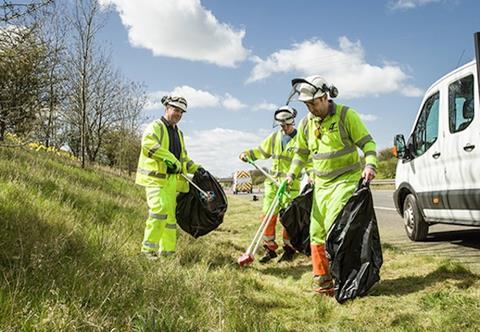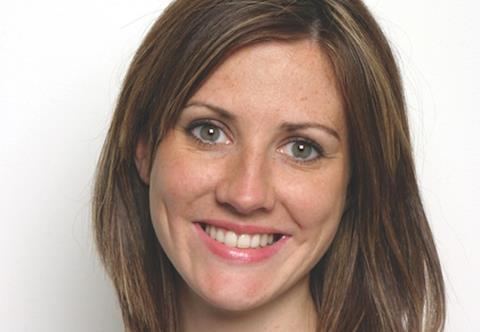
Need to know
- Employers can promote sun safety and help employees hydrate; dehydration causes headaches, dizziness and can affect performance.
- Employers can take advantage of the good weather to encourage employees to get active outdoors.
- They can flag up country-specific advice and GP helplines to help employees stay healthy on holiday.
Warmer weather, longer days and holidays can make the summer months special for many employees. But, with the season also bringing its own health issues, it is worth running a summer health campaign to keep employees fit and well.
As well as being a good hook to engage employees with their health, it can also pay dividends for employers. Carol Porter, head of commercial at The Health Insurance Group, says: “Summer health problems such as hay fever, dehydration and even skin cancer can have a major effect on productivity. So, although it’s not strictly an employer’s responsibility to raise awareness of these issues, it can make a big difference to the workplace.”
Safe sun
One of the most popular campaigns, especially where employees are working outdoors, is skin cancer awareness. There is plenty of support available from charities such as Cancer Research and the British Association of Dermatologists, says Porter. “An employer could provide advice on sun protection and how to check for skin cancer, perhaps even bringing in a screening service to do this,” she explains.
For example, Check4Cancer offers a service where a nurse explains what to look for and checks any suspicious moles, as well as a more personalised service where employees receive a thorough assessment with a follow-up report. Troels Jordansen, managing director of Check4Cancer, says: “Around 8% of the people we see are referred for further investigation. Educating employees about the steps they can take to protect themselves is a good way to prevent them getting this cancer.”
Summer ailments
Summer health campaigns can also focus on common conditions. Although most of us will be desperate to get out and enjoy the sun (safely), hay-fever sufferers can dread the arrival of the summer months. Dr Umang Patel, clinical director at Babylon Health, says: “We track the pollen count through the summer and can report back to employers if we see an increase in the number of calls about allergies. Raising awareness of when the pollen count will be high and the steps employees can [take] to alleviate their symptoms can be helpful.”
Another common summer complaint is dehydration, causing headaches and affecting concentration and performance. While the effects can be severe, it is a simple issue to address, says Beate O’Neil, head of wellness consulting at Punter Southall Health and Protection. “[Employers can] provide water but also highlight the importance of being properly hydrated,” she says. “[They] might even want to extend [the] campaign to alcohol consumption, explaining the implications of drinking too much and highlighting the drink-drive limits.”
Get active
Summer can also be a good time to promote healthy lifestyles, especially with the weather improving. “People are much more inclined to go outside when the sun’s shining so [employers can] encourage them to go out for a walk at lunchtime or to have outdoor or walking meetings,” says O’Neil. “[They] can also promote diet and nutrition, helping employees to eat healthily and lose weight.”
While it is possible to put together their own walking campaign, employers can also hook into a packaged programme. For example, Westfield Health runs a Walking Lunch initiative. Fiona Lowe, head of HR at Westfield Health, explains: “We’re encouraging employees to reclaim their lunch break by getting out and walking for 20 minutes. Although our challenge runs in May, the summer months are ideal for this sort of initiative. We ran a campaign last year and participants said they felt happier, less stressed and more sociable.”
Health on holiday
It is also worth focusing on employee health while they are on holiday, even if they may be thousands of miles away. Medical insurers can provide country-specific health information and details of any vaccinations required or this can be obtained from the Foreign Office.
GP helplines can be useful for holidays too. Patel explains: “People do get unwell on holiday or bring nasty things back with them. If they have any concerns, at home or away, they can call our service and get advice from one of our doctors.”
After all, providing this type of support while staff are away can help to ensure employees return to work healthy, refreshed and ready for work.

A-one+ advocates sun safety through summer health campaign
Integrated highways service and solutions provider A-one+ employs more than 1,000 people carrying out maintenance, incident response and engineering projects on behalf of Highways England. With so many of its employees working outdoors, it launched a summer health campaign in 2015. Emma Hughes, network intelligence technician and lead health advocate at A-one+, says: “We wanted to raise awareness of skin cancer and help our employees stay safe in the sun. We often think that because we’re in the UK the risks are low but even on a cloudy day, the UV rays can still cause damage.”
To raise awareness it provided all its employees with water bottles to help them stay hydrated, and beads that change colour when they detect an increase in damaging UV light. It also ran skin cancer awareness sessions, helping employees to understand the early signs and giving them information on sun protection lotion and how to cover up.
On top of this, it also drew employees’ attention to the sun-protection lotion dispensers in all of its depots and welfare vans so they could guard against sun damage. “We had a great response,” says Hughes. “Everyone’s got really involved with the campaign and it’s led to some significant changes in behaviour. Given that more than 80% of our employees are male, it's brilliant that they put sun cream on and let me know when the dispensers need changing.”
As well as helping to protect against future sun damage, the campaign has also resulted in some employees seeking further medical attention. “In my area, a handful of people have been to see their GPs about their moles and we’ve also had a couple of employees who were diagnosed with skin cancer,” adds Hughes. “It’s definitely a campaign we intend to run every year.”

Viewpoint: Sun awareness education is first step to preventing excessive UV exposure
Skin cancer is the most common form of cancer in the UK. Each year there are 250,000 new cases of non-melanoma skin cancer and 13,000 new cases of melanoma skin cancer within the UK, and these statistics are rising.
UV radiation, as found in sunlight and sunbeds, is a well-known cause of skin cancer. Figures from the Institution of Occupational Safety and Health (IOSH) show that, of the UK skin cancers mentioned above, 1,740 are linked to uncontrolled sun exposure at work. Five outdoor workers a day get skin cancer in the UK, and 60 workers in the UK die from skin cancer each year. And indoor workers can be the worst culprits for sunburn – spending their lunch hour outside with no shade during the hottest part of the day.
A 2014 study by the British Association of Dermatologists (BAD) found that 95% of Brits knew that skin cancer rates in the UK were rising and 84% were worried about skin cancer in the UK climate. In spite of this, 72% had been burnt in the last 12 months and 77% didn’t feel confident in recognising the signs of skin cancer.
Facilitating behavioural change is a key tool for employers to alleviate the risk that their employees face from UV radiation. While most people are aware of the risks of UV-induced cancer they simply don’t take the precautions necessary to protect themselves. Another BAD survey, published in May 2016, found that 80% of Brits don’t apply sunscreen properly and that 35% would only seek shade if it was hot, as opposed to avoid burning.
Providing employees with sun awareness education and knowledge of best sun safety practices is the first basic step in preventing excessive UV exposure. Further to this, providing employees with shaded outdoor areas and communal sunscreen with an SPF of at least 30 would further assist in reducing risk. If budget is a problem then there is a free mobile app available (UV&ME) which is designed to encourage behavioural change by monitoring the UV levels in the user’s area and sending them a text message warning when levels become potentially dangerous for their skin type.
Nina Goad is head of communications at the British Association of Dermatologists (BAD)
















